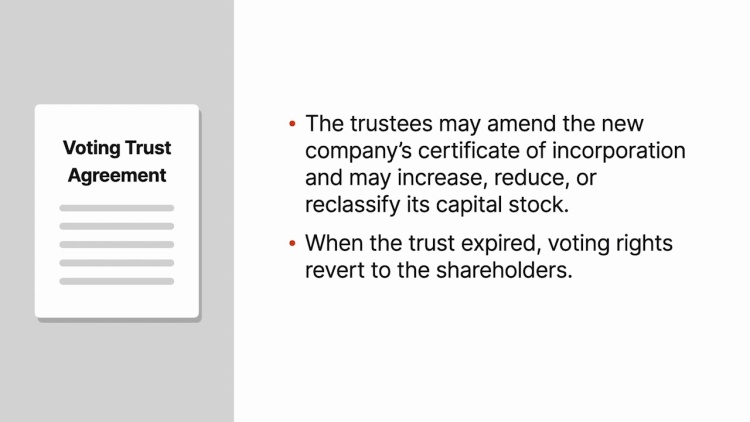Brown v. McLanahan
Fourth Circuit Court of Appeals
148 F.2d 703 (1945)
- Written by Mary Pfotenhauer, JD
Facts
Several utility companies were reorganized in bankruptcy. Under the reorganization plan, debentures and shares of preferred stock were issued to lien holders, and shares of common stock in the reorganized Baltimore Transit Company (the Company) were issued to previous common stockholders and unsecured creditors. Under the plan, voting rights were vested exclusively in the preferred and common stock. As long as six months of dividends remained unpaid on the preferred stock, the preferred stockholders had the exclusive right to vote for all but one of the Company’s directors under the plan. No dividends were ever paid on the preferred stock, and the exclusive right to elect all but one director remained vested in the preferred stock. The plan also established a voting trust for the preferred and common stock for a period of ten years, under which all of the stock due under the plan was issued to eight voting trustees in exchange for voting trust certificates to those parties entitled to shares. On termination of the trust in July 1945 the voting rights were to revert to the certificate holders. The eight voting trustees also made up a majority of the Company’s directors, elected by their own votes, and held substantial amounts of the debentures. In June 1944, without any notice to trust certificate holders, the trustees voted to amend the Company’s charter. The amendment eliminated the provision granting exclusive voting rights in the preferred stock while dividends remained unpaid, granted voting rights to debenture holders, thereby creating 221,000 new votes, and provided that after the trust’s termination the common stockholders would be divested of their exclusive right to elect one director. Dorothy Brown (plaintiff) holds voting trust certificates representing 500 shares of preferred stock. Brown brought a class action against the Company, its trustees, and directors (defendants) on behalf of the preferred stockholders, seeking to set aside the amendment. Brown argues: (1) the trustees did not have the power to diminish the voting power, because they held it in trust for the stock and debenture holders, to be returned upon termination of the trust in the same condition in which they received it; (2) it was an abuse of trust to use the voting power held in trust for the advantage of the debenture holders to the detriment of the preferred stockholders; and (3) it was an abuse of trust to use the voting power for the trustees’ own benefit as debenture holders, to the detriment of the preferred stockholders. The trial court granted a motion to dismiss the complaint, and Brown now appeals.
Rule of Law
Issue
Holding and Reasoning (Dobie, J.)
What to do next…
Here's why 907,000 law students have relied on our case briefs:
- Written by law professors and practitioners, not other law students. 47,100 briefs, keyed to 996 casebooks. Top-notch customer support.
- The right amount of information, includes the facts, issues, rule of law, holding and reasoning, and any concurrences and dissents.
- Access in your classes, works on your mobile and tablet. Massive library of related video lessons and high quality multiple-choice questions.
- Easy to use, uniform format for every case brief. Written in plain English, not in legalese. Our briefs summarize and simplify; they don’t just repeat the court’s language.





